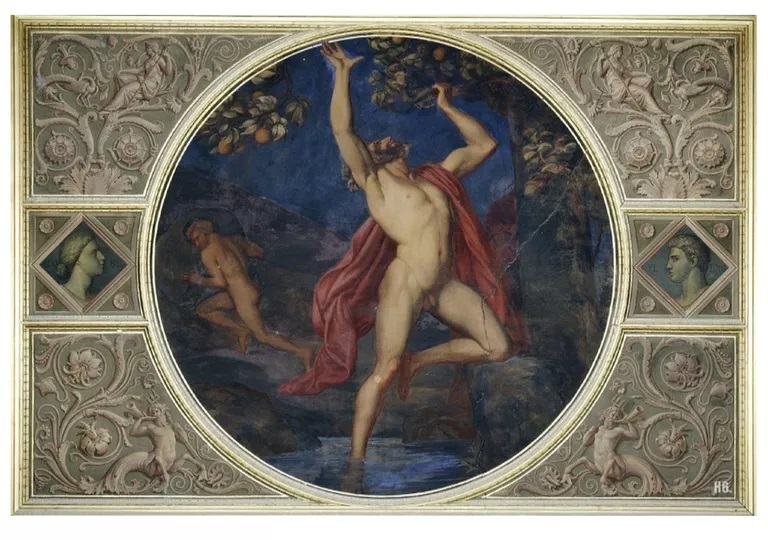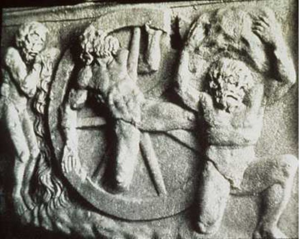Tantalus
“Can’t get what you want, tantalizing as it is”

Why?
“Because you have betrayed the gods”
***
Tantalus, Greek Tantalos, in Greek legend, son of Zeus or Tmolus (a ruler of Lydia) and the nymph or Titaness Pluto (Plouto) and the father of Niobe and Pelops.
He was the king of Sipylus in Lydia (or of Phrygia) and was the intimate friend of the gods, to whose table he was admitted. The punishment of Tantalus in the underworld was occasioned by one of several crimes, according to various ancient authors:
(1) He abused divine favour by revealing to mortals the secrets he had learned in heaven.
(2) He offended the gods by killing his son Pelops and serving him to them in order to test their power of observation.
(3) He stole nectar and ambrosia, the food of the gods, from heaven and gave them to mortals, according to Pindar’s first Olympian ode.
According to Homer’s Odyssey, Book XI, in Hades Tantalus stood up to his neck in water, which flowed from him when he tried to drink it, and over his head hung fruits that the wind wafted away whenever he tried to grasp them (hence the word tantalize).

According to Pindar’s first Olympian ode, a rock hung over his head ready to fall and crush him.

This article was most recently revised and updated by Alicja Zelazko.
Britannica, The Editors of Encyclopaedia. “Tantalus”. Encyclopedia Britannica
Favored by the gods, Tantalus was allowed to dine with them. Taking advantage of this position, he either made a meal for the gods of his son Pelops or he told other mortals the secrets of the gods which he had learned at their table. When Tantalus served Pelops to the gods, all except Demeter recognized the food for what it was and refused to eat, but Demeter, grieving for her lost daughter, was distracted and ate the shoulder. When the gods restored Pelops, he was given an ivory replacement.
Consequences
Tantalus is known primarily for the punishment he endured. Tantalus is shown in Tartarus in the Underworld eternally trying to do the impossible. On earth, he was punished either by having a stone hang forever over his head or by being driven from his kingdom.
Punishment
The punishment of Tantalus in Tartarus is to stand knee deep in water but be unable to slake his thirst because whenever he bends down, the water vanishes. Over his head hangs fruit, but whenever he reaches for it, it goes just beyond his reach. From this punishment, Tantalus is familiar to us in the word tantalize.
Tantalus and the House of Atreus
After Tantalus betrayed the trust of the gods his family started to suffer. His daughter Niobe was turned to stone. His grandson was the first husband of Clytemnestra and was killed by Agamemnon. Another grandson, through ivory-shouldered Pelops, was Atreus, father of Agamemnon and Menelaus. Atreus and Thyestes were brothers and rivals who wound up destroying each other. They had fallen under a curse uttered by Hermes’ son Myrtilus against Pelops and all his family. Atreus further defied the gods by promising Artemis a golden lamb and then failing to deliver it. After a series of tricks and treacheries between the brothers, Atreus served up a dish to his brother of three of Thyestes’ children.
Gill, N.S. “Who Is Tantalus?” ThoughtCo, Aug. 28, 2020, thoughtco.com/tantalus-111914.